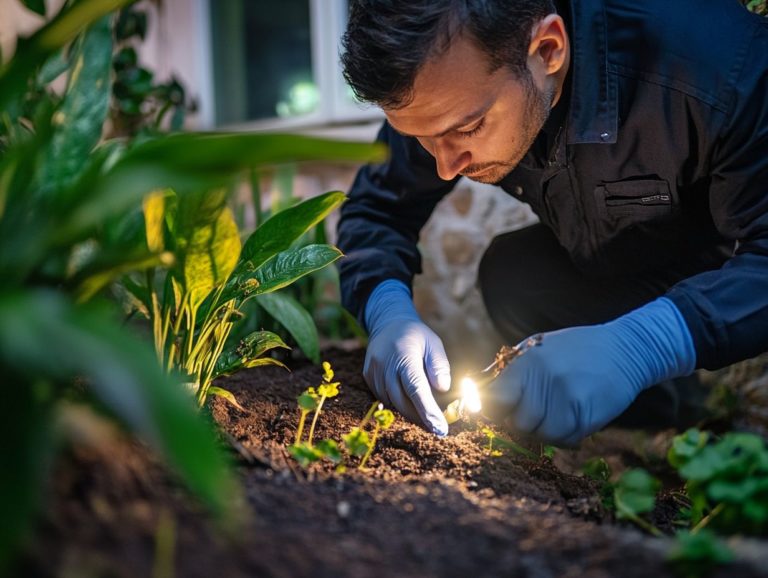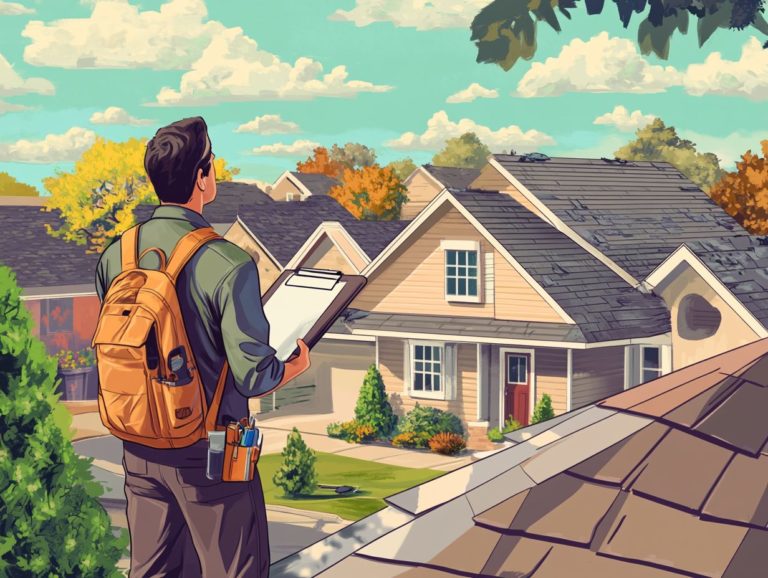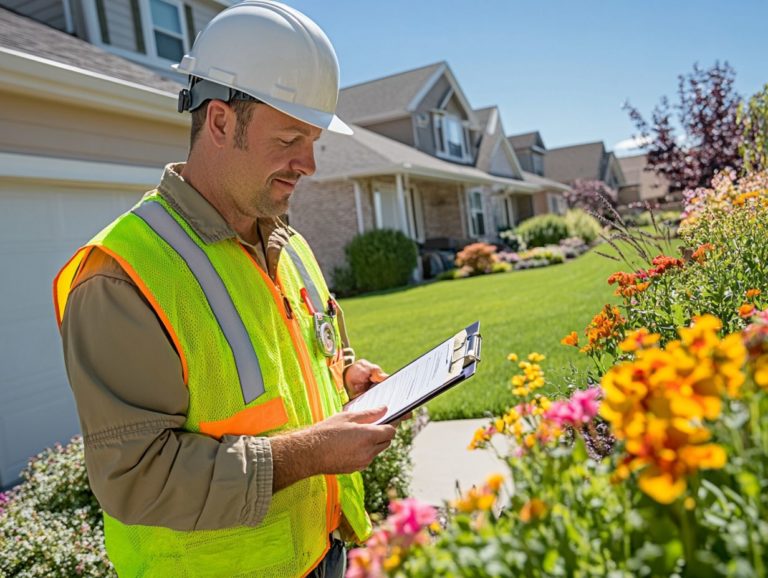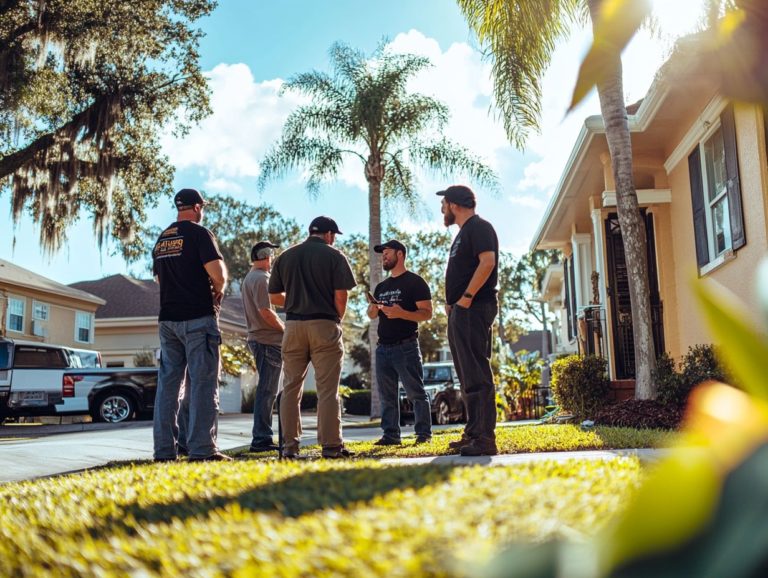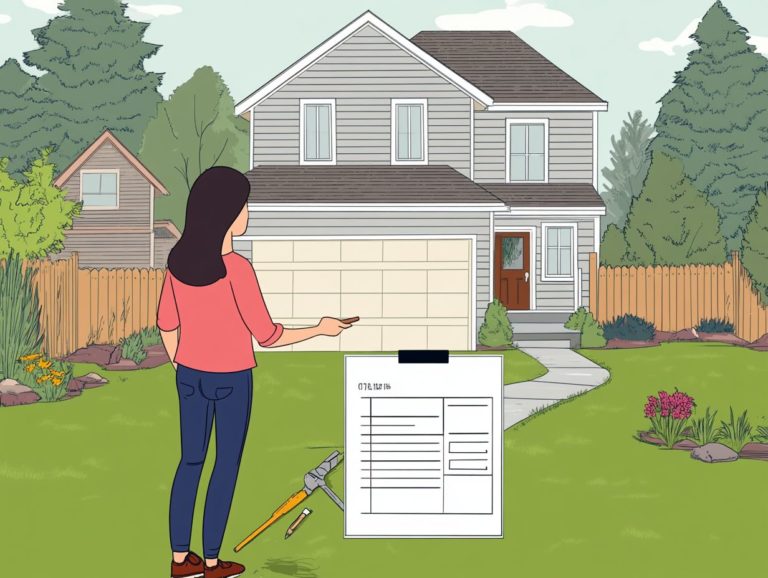Understanding the Benefits of Home Inspections
When navigating the intricate world of real estate, one vital step that often slips under the radar is the home inspection. This process not only uncovers potential issues but also offers peace of mind and significantly influences the outcome of your transaction.
This article delves into the nuances of what a home inspection involves, emphasizing its significance for both buyers and sellers. You will learn what to expect during the inspection process, ensuring you are fully informed.
You will also get helpful tips on interpreting the inspection report and selecting a qualified inspector, equipping you with the knowledge needed for this essential aspect of real estate transactions.
Contents
Key Takeaways:
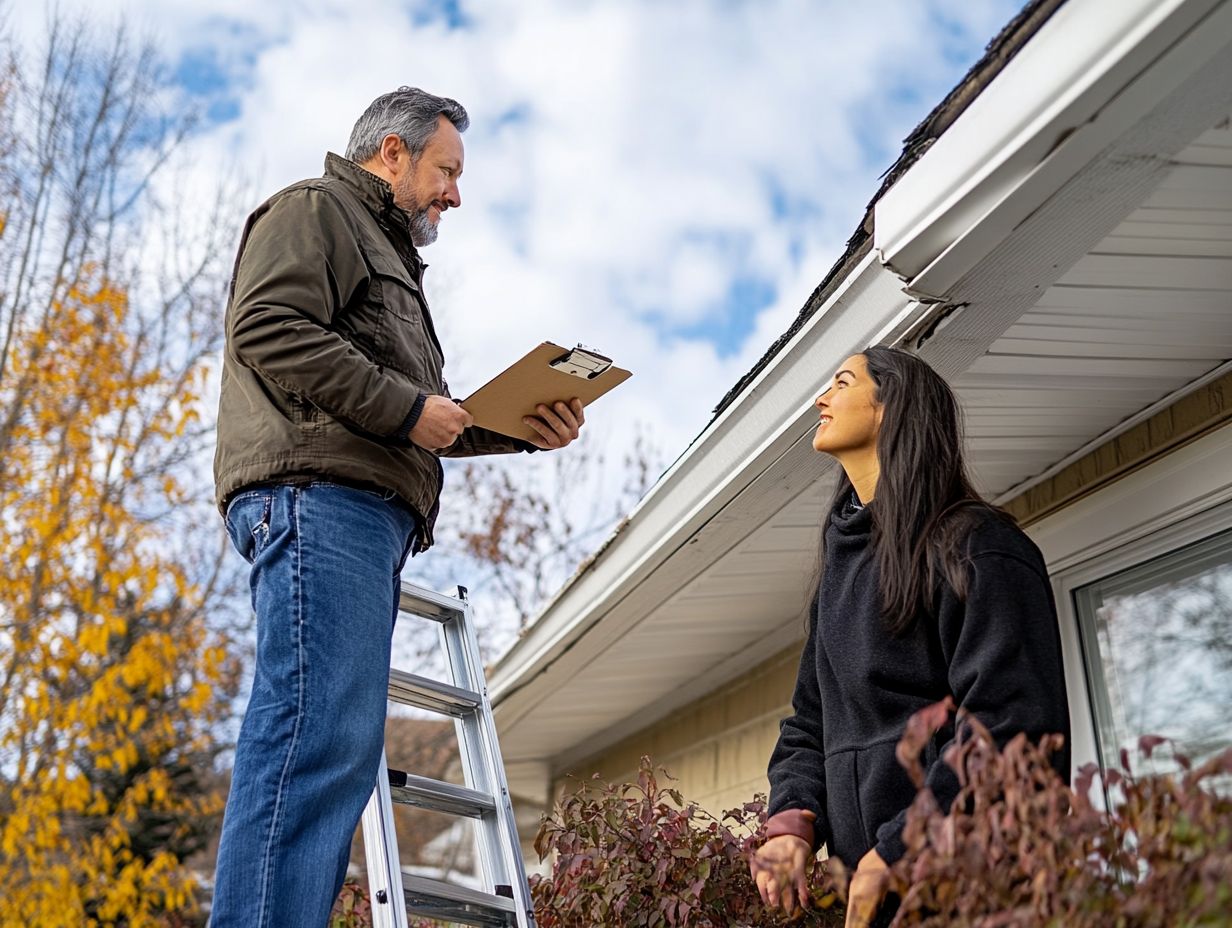
A home inspection is a critical step in the home buying or selling process, providing valuable insight and protection for both parties. Home inspections can reveal potential issues and save buyers from unexpected expenses, while also allowing sellers to address any problems before listing their home. For more details, refer to understanding the process of home inspections. When choosing a home inspector, consider their qualifications, experience, and ask questions to ensure a thorough and accurate inspection.
What is a Home Inspection?
A home inspection is a detailed check to see how the property is doing, usually carried out by a certified professional inspector. This expert meticulously assesses various aspects of the home, such as its structural integrity, electrical systems, plumbing, heating, ventilation, and air conditioning (HVAC) system, and overall safety concerns.
This process is essential for both home buyers and sellers, as it allows you to grasp the current state of the property, pinpoint significant defects or minor issues, and understand the home inspector’s role in fostering transparency and trust throughout the real estate transaction.
Why are Home Inspections Important?
Home inspections are a game-changer in real estate, providing substantial advantages for both buyers and sellers. They offer a thorough understanding of a property’s condition and are crucial for understanding the necessity of home inspections, which can greatly influence its value and contribute to a more seamless closing process.
The Process of a Home Inspection
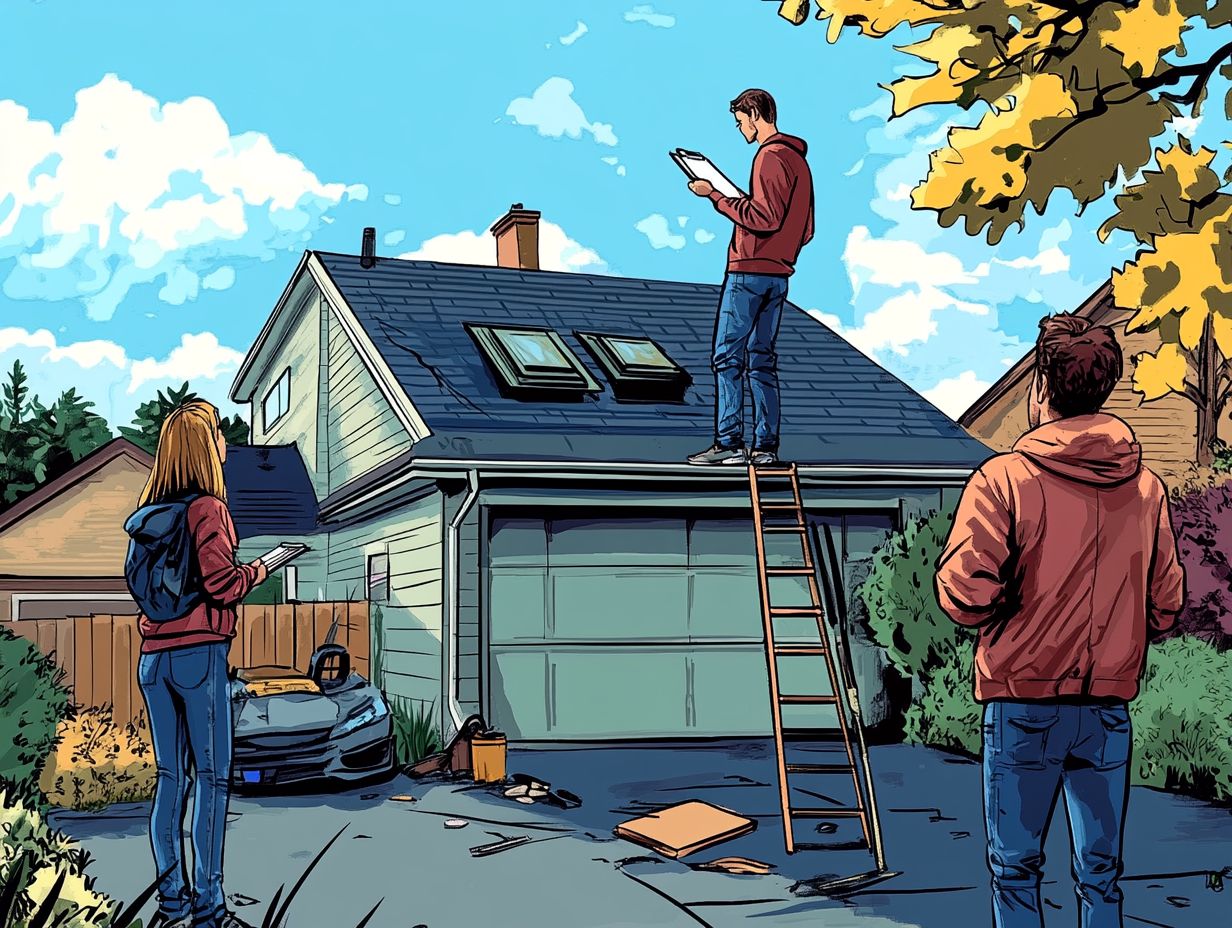
The home inspection process is a meticulous endeavor that starts with hiring a certified home inspector. This professional will follow a comprehensive inspection checklist to check all critical components of the property.
From assessing structural integrity to examining electrical and plumbing systems, as well as the HVAC system, this process typically spans a few hours, ensuring that every detail is carefully considered.
What to Look for in a Home Inspection Report
When you review a home inspection report, it s crucial to focus on key elements like the overall condition of the property, any significant defects, and suggested repairs. These insights can profoundly impact the negotiation dynamics between you and the seller, influencing the final agreement and your investment’s long-term value.
Common Issues Found During Home Inspections
Home inspections frequently uncover a variety of common issues, ranging from minor cosmetic flaws to significant problems that can jeopardize the safety and structural integrity of your property. These concerns may include:
- Foundation issues
- Outdated electrical systems
- Plumbing leaks
- Potential mold hazards
Each of these requires careful evaluation and proactive solutions to ensure your home remains a safe and sound investment.
How to Choose a Qualified Home Inspector
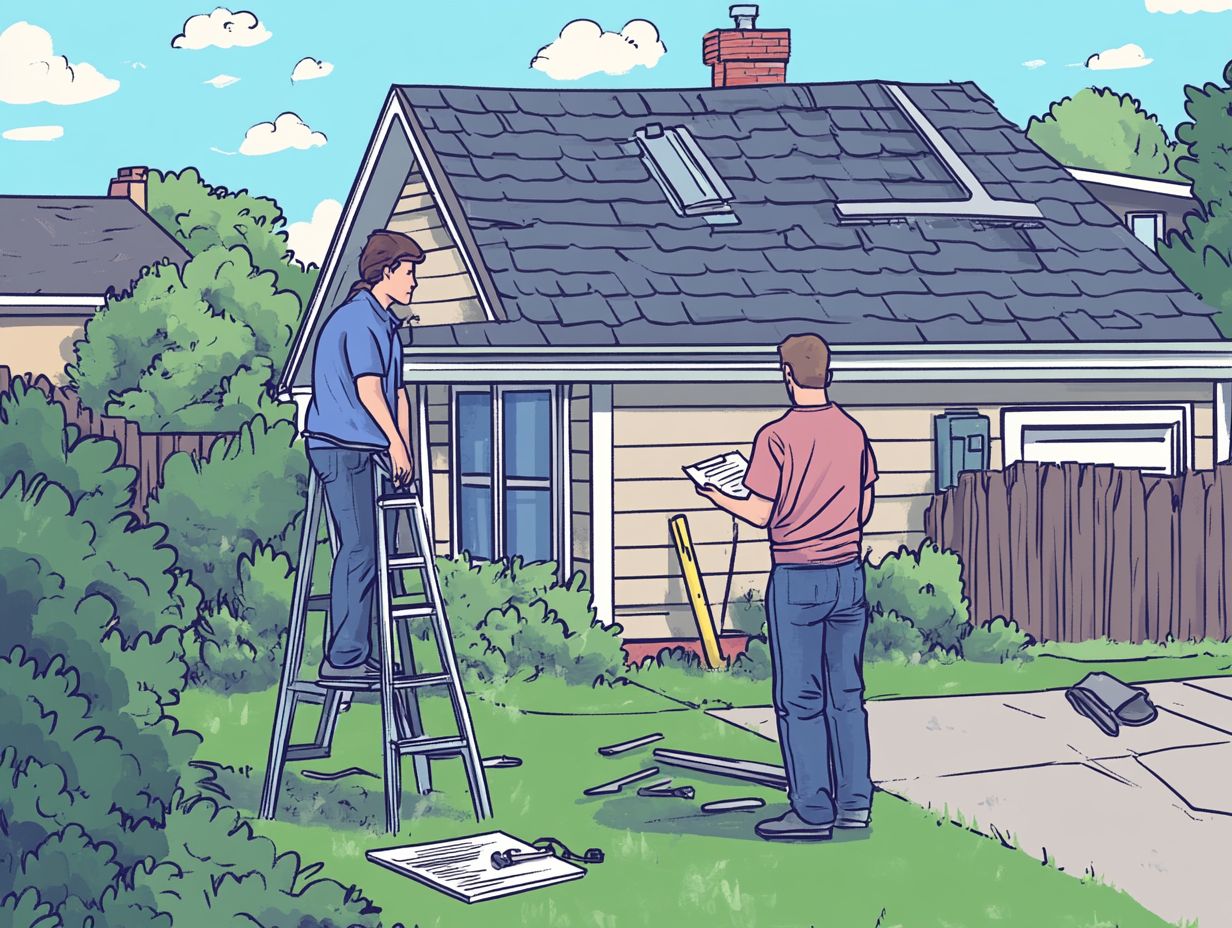
Selecting a qualified home inspector is a pivotal step in the home inspection journey. This choice guarantees a thorough evaluation of the property and requires you to consider the inspector’s certification, their experience with particular inspection standards, and to engage in thoughtful dialogue that reveals their expertise.
By doing so, you position yourself to make informed decisions about your potential investment.
We invite you to share your home inspection experiences or questions in the comments below!
Definition and Purpose
The definition and purpose of a home inspection hinge on evaluating a property’s condition to create transparency and trust between buyers and sellers. This ensures that all parties are well-informed about the home’s current state.
This evaluation is pivotal in real estate transactions, acting as a comprehensive tool that uncovers potential issues, necessary repairs, and overall safety standards. This objective analysis empowers you to make informed decisions grounded in thorough insights rather than mere assumptions.
For sellers, this process encourages presenting their property in the best possible light. It facilitates a smoother negotiation process.
Ultimately, this practice not only helps prevent future disputes but also enhances confidence, leading to a more favorable and secure transaction for everyone involved.
Benefits for Buyers and Sellers
Both buyers and sellers can reap substantial benefits from a home inspection. It acts as a vital negotiation tool and helps establish an inspection contingency. For more insights, check out understanding the need for home inspections, safeguarding the interests of both parties throughout the transaction.
By uncovering potential issues early on, a home inspection promotes transparency and trust. Understanding the home inspection process is a proactive approach that not only assists in fair pricing!
As a buyer, you can utilize the inspection findings to negotiate repairs or credits, effectively reducing any unexpected expenses after the purchase. Sellers who showcase a well-maintained property often accelerate the selling process and may secure a better price, ensuring a smoother transaction experience overall.
Step-by-Step Guide
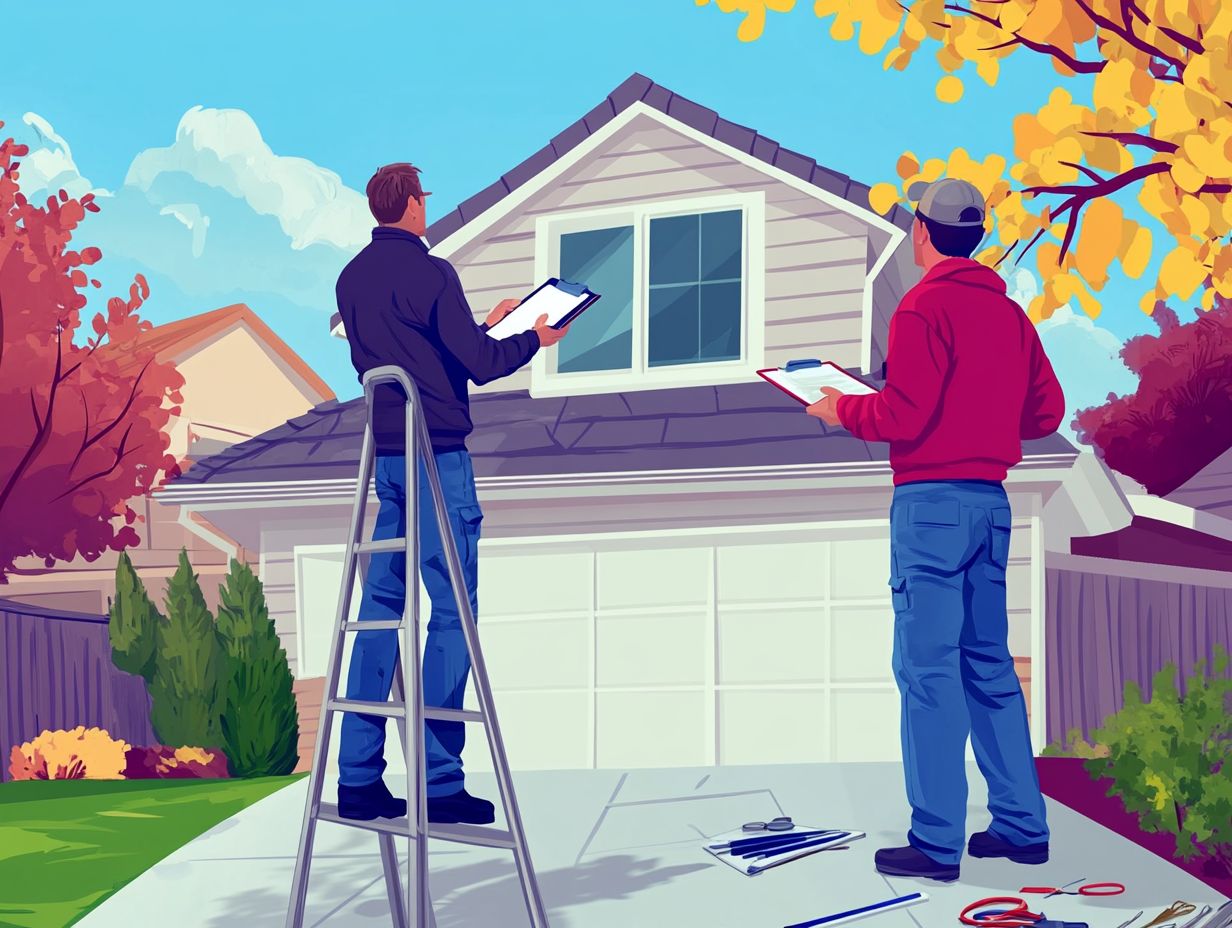
This comprehensive guide takes you through the home inspection process step by step, from selecting a trustworthy home inspector to understanding the different steps of the inspection. This ensures you remain informed at every turn.
As you embark on the journey of purchasing a home, it s essential to have a clear understanding of the inspection process, which typically begins with careful planning. This involves setting a budget for inspection costs and crafting a checklist of potential concerns that may need attention.
Once you ve hired the home inspector, the execution phase kicks off, involving thorough assessments of the property’s structure, electrical systems, plumbing, and more.
After the inspection, it s vital to engage in a discussion with the inspector about the findings. This conversation will help you fully understand any necessary repairs or ongoing maintenance, enabling you to make informed decisions as you move forward.
Key Factors to Consider
When you re diving into a home inspection report, there are several key factors to keep in mind. You ll want to assess the condition of major systems, identify significant defects, and review the list of recommended repairs to guide any necessary negotiations.
Pay particular attention to essential components like the roof, plumbing, electrical systems, and Heating, Ventilation, and Air Conditioning (HVAC) units. It s crucial to note any immediate safety concerns think faulty wiring or leaks as these issues can pose hazards or lead to further damage down the line.
Understanding the financial implications of repairs is equally vital. You should evaluate whether the cost of fixing these defects aligns with your budget and long-term investment plans. By focusing on these critical aspects, you ll enable yourself to make informed decisions and negotiate effectively.
Examples and Solutions
This section delves into common issues that often arise during home inspections, covering everything from minor cosmetic repairs to significant concerns like foundation problems, accompanied by practical solutions to tackle these challenges.
As a homeowner, you might encounter issues such as plumbing leaks that could lead to considerable water damage if not addressed swiftly. Take, for example, a leaky faucet; it may appear insignificant, but over time, it can waste thousands of gallons of water.
Engaging professional plumbing services for timely repairs like replacing worn-out washers or outdated fixtures can prevent these small annoyances from spiraling out of control.
Ensure your roofing is in good condition; missing shingles or leaks can create serious structural headaches. Regular maintenance performed by qualified roofing contractors can extend the life of your roof, effectively safeguarding your home from the ravages of weather-related damage.
Factors to Consider and Questions to Ask
When you’re looking to hire a qualified home inspector, it s crucial to consider their certification, experience, and important inspection details. Prepare some insightful questions to ensure they align with your expectations!
Taking the time to evaluate these factors can significantly impact your home-buying journey. It s essential to verify that the inspector holds certifications from reputable organizations. This often indicates their commitment to ongoing education and adherence to industry standards.
Experience is also crucial, especially with homes similar to the one you’re considering. Don t hesitate to ask about their past inspections, the tools they use, and their assessment process.
Inquiring about their approach to identifying potential issues and the timeline for delivering the report can give you valuable insight into their thoroughness and responsiveness. Remember, making a well-informed decision now can save you from unexpected surprises down the road!
Frequently Asked Questions
What is a home inspection and why is it important?
A home inspection is a visual examination of a property’s structure, systems, and components. It is important because it can help identify any potential issues or defects in the property, allowing the buyer to make an informed decision before purchasing. For more details on the process, check out this guide on understanding the home inspection process for buyers.
What are the main benefits of getting a home inspection?
The main benefits of a home inspection include identifying any potential safety hazards, finding hidden defects, estimating necessary repairs or upgrades, and understanding the importance of home inspections to negotiate a fairer price for the property.
When should a home inspection be scheduled?
Schedule your home inspection ASAP to avoid any surprises! A home inspection should be scheduled as soon as possible after an offer has been made and accepted on a property. This will allow enough time for any potential issues to be addressed and for the buyer to make an informed decision.
Who typically pays for a home inspection?
Generally, the buyer pays for the home inspection, as it is for their benefit. However, it may be possible for the seller to cover the cost if it is negotiated in the sales contract.
What happens if the home inspection reveals major issues?
If major issues are discovered during the home inspection, the buyer can negotiate for repairs to be made by the seller, a reduction in the purchase price, or they can choose to back out of the purchase altogether.
Can a home inspection be waived?
While it is not recommended, a home inspection can be waived if the buyer is confident in the condition of the property. However, this could potentially lead to costly surprises or issues down the line and is not advised for first-time homebuyers.


